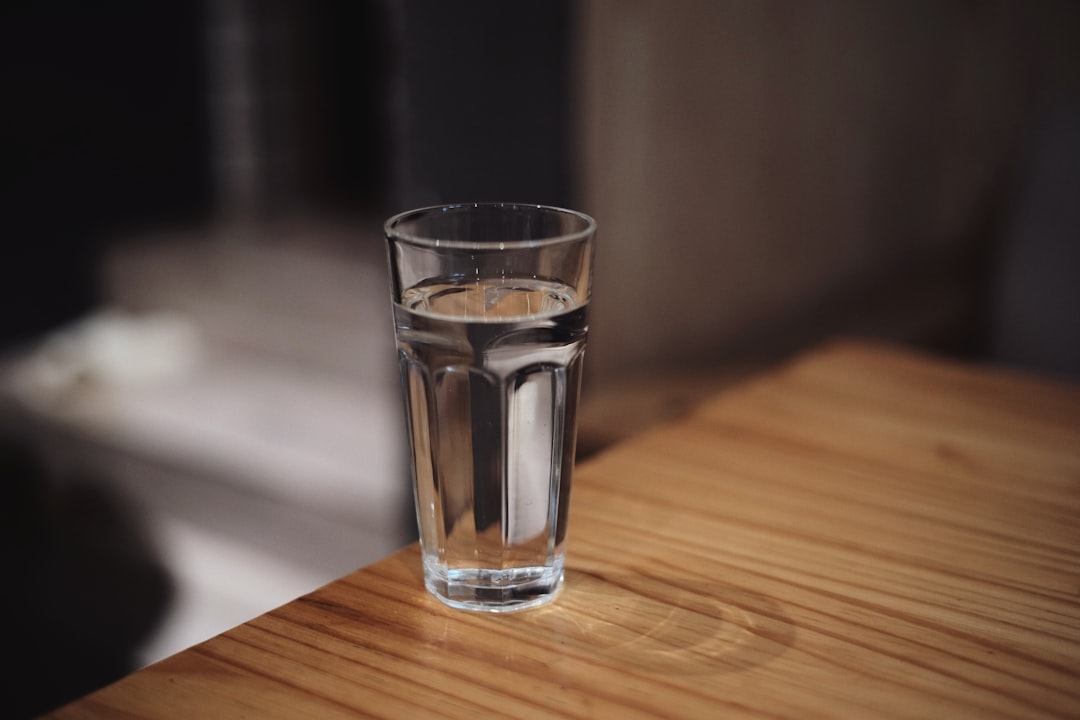Don’t Take Kidney Stones for Granite: Tips for Managing and Preventing Kidney Stones
Understanding Kidney Stones
Kidney stones are solid deposits formed from crystallized minerals and salts inside the kidneys, typically when urine becomes overly concentrated, allowing these substances to crystallize and clump together. This can happen when there is an excess of minerals like calcium, oxalate, or uric acid in the urine. There are four main types of kidney stones: calcium stones, which account for the majority of cases, struvite stones that can form in response to an infection, uric acid stones often associated with a high-protein diet, and cystine stones that occur due to a hereditary disorder called cystinuria. Each type has distinct causes and may require different prevention strategies.
Kidney stones affect approximately 12% of the U.S. population and are known for their painful passage and potential to recur if preventive measures are not implemented. The size of these stones can vary significantly, ranging from a grain of sand to a golf ball in diameter, and their size is a crucial factor in determining whether they can pass naturally through the urinary tract or require medical intervention. Risk factors for developing kidney stones include obesity, diabetes, and metabolic disorders, which can alter the balance of minerals in the body and increase the likelihood of stone formation [6]. Understanding these factors is essential for effective prevention and management of kidney stones, which can otherwise lead to severe pain and complications.
Impact of El Paso’s Hot Climate
Climate and Dehydration
In hot climates like El Paso, the risk of kidney stone formation is significantly heightened due to the increased likelihood of dehydration. The scorching temperatures prevalent in this region can cause excessive sweating, leading to substantial fluid loss and consequently, reduced urine volume. This reduction in urine volume can result in a higher concentration of minerals and salts, which are the building blocks of kidney stones. For instance, during the peak of summer, an individual might sweat more profusely, necessitating a concerted effort to replace lost fluids to maintain proper hydration levels.
To effectively combat the risk of dehydration, residents of El Paso should make it a priority to consume between 2.5 and 3.0 liters of fluids daily. This proactive measure helps ensure that the urine remains diluted, thereby reducing the risk of stone formation. It’s also crucial for individuals to be wary of the dehydrating effects of substances like caffeine and diuretics, which can exacerbate fluid loss. Moreover, heat-related illnesses, which are not uncommon in such climates, can further deplete body fluids, emphasizing the need for vigilant hydration. By staying adequately hydrated, residents can mitigate the adverse effects of the hot climate on kidney health.
 Symptoms and When to Seek Help
Symptoms and When to Seek Help
Recognizing Symptoms
Kidney stones often manifest with a range of distressing symptoms that can disrupt daily activities. One of the most common and significant symptoms is severe pain, typically felt in the abdomen or lower back, which can be particularly intense and may come in waves as the stone navigates through the urinary tract. This pain is often described as one of the most severe types of pain, and it can sometimes radiate to the groin area. Alongside pain, individuals may experience nausea and vomiting, which can exacerbate the discomfort and highlight the severity of the condition. Blood in the urine is another alarming symptom, indicating irritation or damage to the urinary tract as the stone passes through.
It is essential to be vigilant for additional signs such as fever and chills, which are potential indicators of an infection accompanying the kidney stones. Such infections can quickly escalate into serious complications if not addressed promptly. Therefore, seeking immediate medical attention is crucial at the onset of these symptoms to prevent further health issues. For residents of El Paso, the El Paso Emergency Room stands ready to provide 24/7 care, equipped with state-of-the-art technology and a team of dedicated healthcare professionals to manage severe kidney stone pain and related emergencies efficiently. Their commitment to swift and compassionate care ensures that patients receive the necessary medical attention without delay, safeguarding against potential complications. For more information, visit the El Paso Emergency Room’s website at El Paso Emergency Room.
Prevention through Hydration and Diet
Hydration Tips
Staying well-hydrated is one of the most effective ways to prevent kidney stones. It is recommended to drink at least 80 ounces of water daily to maintain an adequate urine output and prevent stone formation. During hot weather or physical activity, increasing fluid intake is essential. Adding electrolytes to your hydration routine can help maintain fluid balance, especially in hot climates. Additionally, consuming water-rich foods like cucumbers and watermelon can aid in staying hydrated.
 Dietary Changes
Dietary Changes
Adopting certain dietary changes can significantly reduce the risk of developing kidney stones. Maintaining a balanced diet with adequate calcium intake (1000–1200 mg/day) is important. It’s advisable to limit sodium intake to 2-5 grams per day and restrict animal protein. Medications such as thiazides and potassium citrate can help manage mineral levels in urine [7]. Reducing intake of high-oxalate foods and incorporating more fruits and vegetables can lower the risk of stone formation. Adequate magnesium consumption may prevent calcium stones by inhibiting crystal formation.
 Managing Pain and Treatment Options
Managing Pain and Treatment Options
Pain Management
Managing the pain associated with kidney stones can be challenging. Ibuprofen is often effective for mild to moderate pain management. For severe cases, stronger pain relief may be necessary under medical supervision. El Paso Emergency Room offers comprehensive pain management solutions for those suffering from kidney stones. Staying hydrated can also aid in managing pain as it facilitates the passage of stones. In more severe situations, opioids may be prescribed, though they should be used cautiously due to potential side effects.
Treatment Procedures
There are several procedures available for treating kidney stones. Extracorporeal shock wave lithotripsy (ESWL) and ureteroscopy are common, minimally invasive procedures used to break up or remove stones. Larger stones that cannot pass naturally may require surgical intervention. Follow-up care typically includes regular urine and blood tests to monitor for stone recurrence. Some patients may benefit from dietary modifications and medications alongside surgical options for comprehensive management. Advances in minimally invasive techniques have improved recovery times and reduced complications.
Natural Remedies and Lifestyle Changes
 Natural Prevention Methods
Natural Prevention Methods
Incorporating natural remedies can be a beneficial strategy for preventing kidney stones. Consuming citrus fruits and lime powder may help reduce stone formation due to their citric acid content. Bioactive products like caffeine and diosmin have also shown promise for prevention. Herbal remedies such as nettle leaf and dandelion root may have diuretic effects, further aiding in prevention.
Lifestyle Adjustments
Making certain lifestyle changes can significantly reduce your risk of developing kidney stones. Maintaining a healthy body weight and avoiding smoking are essential steps. Regular exercise and a balanced diet contribute to overall kidney health. Stress management techniques can also play a role in prevention by promoting overall wellness. Limiting sugary drinks and high-fructose corn syrup can further help lower the risk of stone formation.
Risk Factors and Recurrence
Identifying Risk Factors
Understanding the risk factors associated with kidney stones can help in prevention. High-protein diets, chronic diarrhea, and gout increase the risk of uric acid stones. A family history of kidney stones may indicate a genetic predisposition. Certain medications can elevate the risk, so it’s important to consult with healthcare providers for guidance. Metabolic disorders may also increase susceptibility due to mineral imbalances.
Recurrence Prevention
Without preventive measures, nearly 50% of individuals with kidney stones may experience recurrence within 10 years. Personalized treatment plans based on stone type and individual urine composition can reduce recurrence rates. Regular medical evaluations and urine testing are crucial for long-term management. Education on dietary recommendations and lifestyle changes can empower patients to prevent recurrence. Consistent follow-ups with healthcare providers ensure timely intervention if stones re-develop.
 Importance of Medical Consultation
Importance of Medical Consultation
 When to See a Doctor
When to See a Doctor
If you experience persistent pain, blood in your urine, or recurrent kidney stones, it’s crucial to seek medical consultation. These symptoms may be indicative of underlying issues that require professional attention. An accurate diagnosis often involves reviewing your medical history and undergoing advanced imaging tests to determine the size and location of the stones. At El Paso Emergency Room, you have access to expert consultations and state-of-the-art diagnostic services tailored specifically for kidney stone patients. By addressing the problem early, you can prevent potential complications, such as infections that could lead to kidney damage or other serious health issues.
For individuals with a history of recurrent kidney stones, specialized nephrology consultations can be particularly beneficial. These consultations provide personalized management strategies that are tailored to your unique health needs, helping to minimize the risk of future stone formation. The nephrologists can offer guidance on dietary adjustments, lifestyle changes, and possibly medication to manage mineral levels in the urine. With the support of El Paso Emergency Room’s comprehensive care, you can ensure that you receive timely interventions and maintain optimal kidney health. Explore more about the services offered by visiting their website to schedule an appointment or learn more about how they can assist you in managing kidney stone challenges.
Tips for Effective Kidney Stone Management
Comprehensive Management Strategies
Effective kidney stone management begins with staying informed about your personal risk factors and maintaining open communication with your healthcare provider. This proactive approach allows for tailored advice and timely interventions that can significantly reduce the risk of recurrence. One practical method to ensure you are meeting your hydration needs is to keep a hydration log. By tracking your daily water intake, you can monitor your consumption and make necessary adjustments to ensure you are drinking enough fluids to prevent stone formation. Moreover, becoming involved in support groups or online forums can be invaluable as they offer a platform to share experiences, learn from others, and gain insights into effective strategies for managing kidney stones.
In addition to hydration, regularly reviewing and adjusting your dietary habits is another key component of kidney stone management. Consulting with a healthcare professional or a nutritionist can help you identify dietary changes that align with your kidney health goals. For example, if you are prone to calcium oxalate stones, reducing your intake of oxalate-rich foods like spinach and rhubarb can be beneficial. By staying vigilant about your diet and actively seeking guidance, you can take meaningful steps toward preventing the recurrence of kidney stones. These comprehensive management strategies not only help in dealing with current stone issues but also empower you to maintain long-term kidney health.
 Call to Action
Call to Action
Dealing with kidney stones doesn’t have to be overwhelming when you have access to the right information and care. By adopting the right preventive strategies and exploring effective treatment options, you can manage kidney stones successfully. Whether you’re experiencing symptoms or looking for ways to prevent them, taking proactive steps is crucial. El Paso Emergency Room stands ready to provide you with top-tier emergency care and expert advice tailored to kidney stone management. Their team of board-certified physicians and experienced staff are equipped with state-of-the-art technology to ensure you receive the highest quality care.
Visiting a trusted facility like El Paso Emergency Room can make all the difference. They offer comprehensive services, from immediate pain relief to personalized treatment plans for long-term prevention. If you’re experiencing severe pain or suspect you might have kidney stones, don’t hesitate to reach out for professional medical assistance. For more detailed information on their services or to schedule a consultation, visit El Paso Emergency Room. Their commitment to compassionate care ensures that you will receive the attention and treatment you need, right when you need it.


